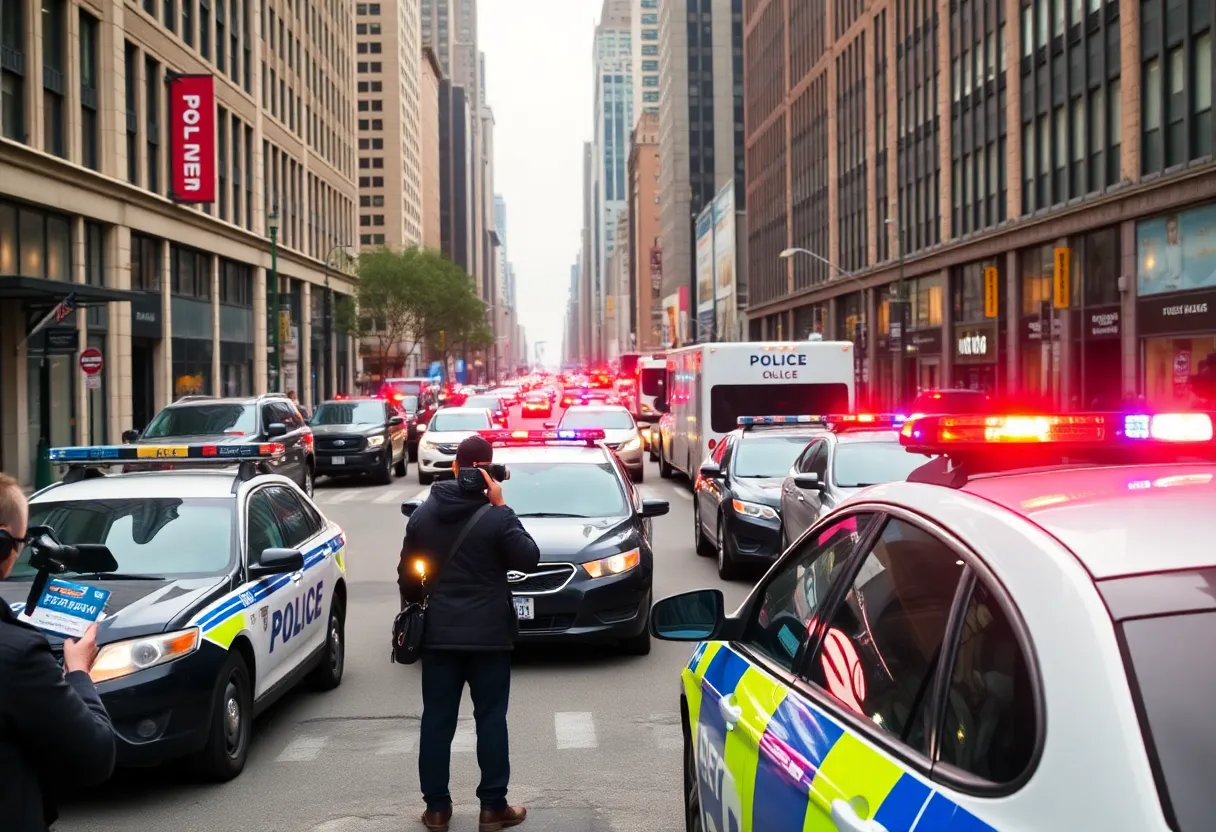News Summary
New York state legislators have approved the ‘Keep Police Radio Public Act,’ aimed at preserving public access to police communications. This move counters the NYPD’s plans to fully encrypt its radio broadcasts, which sparked concerns about transparency and accountability. Proponents of the bill, including Senator Michael Gianaris and Assemblymember Karines Reyes, argue it balances privacy and public oversight. The legislation heads to Governor Hochul for approval amidst debates on officer safety and the importance of police transparency in reporting incidents.
New York state lawmakers have passed a significant piece of legislation aimed at ensuring transparency in police communications. On Thursday, the state Senate and Assembly voted to advance the “Keep Police Radio Public Act,” which prevents the New York Police Department (NYPD) from fully encrypting its radio communications. Following its passage, the bill will be sent to Governor Kathy Hochul for her review and potential approval.
The new legislation seeks to maintain real-time access to police radio communications for emergency service organizations and journalists, while safeguarding sensitive information. The bill was spearheaded by State Senator Michael Gianaris from Queens, who emphasized the importance of this access for both the public and the press, highlighting that it strikes a proper balance between transparency and privacy.
Assemblymember Karines Reyes from the Bronx also sponsored the proposal, emphasizing that it is critical for police accountability and the flow of information to the public. The legislation comes as a response to the NYPD’s plans, announced in late 2023, to fully encrypt its radio broadcasts as part of a major system upgrade. This decision faced considerable backlash from press advocates and local officials, who argued that such encryption would hinder the ability of journalists to cover breaking news and diminish public oversight of police activities.
An NYPD spokesperson defended the encryption, arguing that it is necessary to protect officer safety and maintain the privacy of victims and witnesses. Critics of the encryption move, however, describe it as an attack on transparency and contend that public access to police radio channels is essential for accountability, particularly during high-profile incidents. The risk of crucial events going unreported underlines the necessity for ongoing access to broadcast content, which many fear could undermine oversight of police actions.
The NYPD’s encryption initiative is projected to cost approximately $400 million, an expense that comes amid budget cuts affecting many city agencies. Experts warn that limiting access to police radio communications may lead to underreporting of incidents, further complicating public understanding of police actions and community safety.
High-profile cases, such as the police-involved deaths of Eric Garner, Amadou Diallo, and Sean Bell, were notably supported by information shared through police radio communications. Press freedom advocates assert that encryption could severely restrict reporters’ abilities to cover police misconduct and deliver essential updates to the public during emergencies.
Although the “Keep Police Radio Public Act” has now been passed by both legislative chambers, Governor Hochul’s office has not yet disclosed her intentions regarding the bill’s approval. If the legislation is enacted, it will extend to police departments across New York State, reaffirming the commitment to transparency in law enforcement operations.
Deeper Dive: News & Info About This Topic
- New York Post: NY Lawmakers Vote on NYPD Radio
- Wikipedia: Law Enforcement in the United States
- Vin News: NY Lawmakers Block NYPD Radio Encryption
- Google Search: NY Police Radio Communications
- AM New York: Bronx Police Radios Encryption
- Encyclopedia Britannica: Policing
- Post Bulletin: Rochester Law Enforcement Encryption
- Google News: Police Radio Communications
- The Guardian: NY Police Encryption Transparency
- Google Scholar: Police Communications Encryption

Author: STAFF HERE NEW YORK WRITER
The NEW YORK STAFF WRITER represents the experienced team at HERENewYork.com, your go-to source for actionable local news and information in New York, the five boroughs, and beyond. Specializing in "news you can use," we cover essential topics like product reviews for personal and business needs, local business directories, politics, real estate trends, neighborhood insights, and state news affecting the area—with deep expertise drawn from years of dedicated reporting and strong community input, including local press releases and business updates. We deliver top reporting on high-value events such as New York Fashion Week, Macy's Thanksgiving Day Parade, and Tribeca Film Festival. Our coverage extends to key organizations like the Greater New York Chamber of Commerce and United Way of New York, plus leading businesses in finance and media that power the local economy such as JPMorgan Chase, Goldman Sachs, and Bloomberg. As part of the broader HERE network, including HEREBuffalo.com, we provide comprehensive, credible insights into New York's dynamic landscape.





